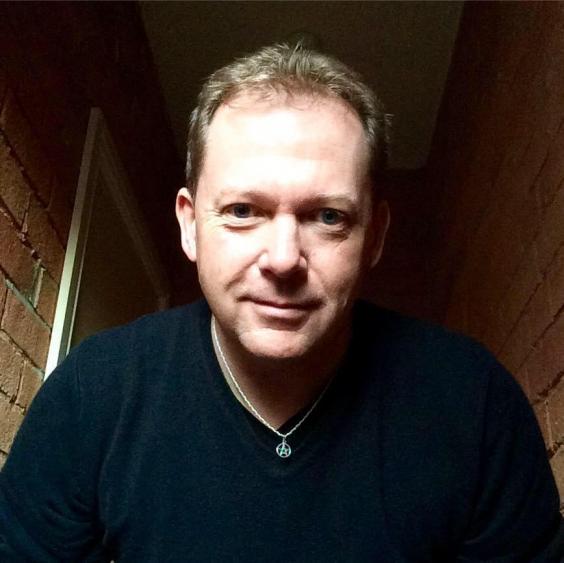Of all the things to reveal to your church-going family members,
announcing you are a witch might
be one of the most difficult.
Ashley Mortimer, 48, is a witch from the contemporary Pagan
path Wicca.
Wiccans trace the movement back to the British man Gerald Gardner in the 1950s.
Wiccans practise witchcraft and
honour the Divine.
Mortimer’s parents belong to the Church of
England so he anticipated the reveal of his spirituality might
not go down so well.
“I knew it wouldn't be popular (teenagers have a feel for such
things with parents I think,” he told The Independent. “And I
can remember being told: ‘We don't want pagan rites in THIS house!’”
Mortimer
says his family were eventually pleased he had “found a spiritual path and
celebrate that we share the notions of faith and morality, albeit in rather
different ways” and realised they were serious.

“I
think my mother gained some perspective when my sister declared herself an
atheist! She told me ‘At least you have a faith, even if it's a bit misguided!’
.She is very pragmatic about faith, she sees it very much as manifesting in
one's daily life and this notion of it as personal, individual and very much a
daily matter is the same style of religiosity with which I approach mine - so
we have commonality in approach at least.”
Mortimer
says his friends have mainly been curious about his beliefs as it is a bit
mysterious, he has not regularly experienced prejudice from other people but
regularly had to stand up for fellow Wiccans.
“I had
an employer who was a churchgoer who I suspected began to treat me differently
and worse after discovering my interest in Paganism but I had no real proof and
I left shortly thereafter,” he says.
Misconceptions
about witchcraft have, of course, a delicate and traumatic history. The witch
trials and executions across Europe in the 16th and 17th centuries are
estimated to have accounted for around 60,000 deaths.
“If
these misconceptions hadn't caused so much suffering in past centuries or so
much suspicion in more recent times then most of them would be simply
laughable,” Mortimer says.
Mark
Black, 36, the president of the UK Pagan Council, says misconceptions most
commonly come in the form of the “do you worship the devil rubbish” along with
“have you got a broom?” and “do you go to a forest and dance round naked”
question, to which he says “quite frankly, England is too cold”.
“You
get the usual misconceptions but over the last ten years or so, because
paganism has been a lot more widely publicised by the media in the right way,
those type of questions are a lot more infrequent than frequent,” he says.
Mortimer agrees
saying society’s renewed openness to a range of “religious and spiritual
freedoms” as well increased tolerance to the rights of an individual has
“helped to establish Witchcraft and other pagan religions as part of our
cultural landscape”.
So how
do modern day UK witches live their lives? Both men say pretty normally, just
like the average person, they hold down jobs and socialise, for example. The
only difference is their practise of witchcraft and magic.
Some
witches live in covens while others live alone. Many lean towards herbalism,
taro, charms, spells and crystals a lot of the time for spiritual growth for
the self and help other people. All the different practises are
apparently just different methods of weaving energy.
Most
wishes tend to specialise in one area Mr Black says and his expertise were
initially rooted in warrior witchcraft: “Initially, I thought I needed to be
masculine”, he says but as he developed he turned his focus toward potions and
realigning energy.
Mortimer
says if magic equates to the ability to cause changes in consciousness in
conformity with will “then yes, we do cast spells”.
However,
Mr Black is reluctant to tell me about the spells he has cast and the examples
of his magic for fear of “cheapening” the witchcraft practise.
“People ask me all the time about if you do something in the craft and
it happens, ‘Is that magic or is it happening?’ to which my reply is ‘Does it
matter?’” he says. “If someone comes to me with a fear of flying and then has
the best flight experience, does it matter if it’s psychosomatic or if it’s
what I believe, energy coming into play? The end result is that the person got
over that. I don’t care where it came fromhttp://www.independent.co.uk/life-style/witchcraft-wiccan-paganism-church-of-england-spells-potions-a7682951.html

No comments:
Post a Comment